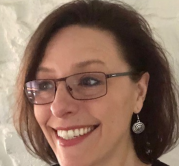Economic equality is necessary for racial equality

February is Black History Month and the best way credit unions can celebrate is by designing their business models to help create economic equality.
The first step is admitting we have a problem.
The Joint Economic Committee released a report called, The Economic State of Black America in 2020. They share an example that shows that we do not see the economic inequality clearly. “A 2019 study found that over 97% of respondents vastly underestimated the huge gap between the median wealth held by Black families ($17,000) and White families ($171,000)—a ratio of 10 to one. Respondents estimated the gap to be 80 percentage points smaller than the actual divide.”
This is where the Diversity, Equity, and Inclusion (DEI) rubber hits the road … this is where “the talk” becomes “the walk.” We must resolve to face the problem directly and deliberately.
The second step is knowing that there is a power greater than ourselves that can bring about change.
Now I know that many people will take issue referring to money as “a power greater than ourselves,” but Einstein did call compound interest the eighth wonder of the world, and I think he is quite smart. We live in America … we all know money has power. The power to leverage oneself. The power to open doors. The power to seize opportunity when it presents itself. True racial equality requires economic equality.
This is where our work as financial institutions comes in – we help people build assets.
Employees:
- Equal pay and representation. Diversity is merely the presence of differences (race, gender, religion, sexual orientation, ethnicity, nationality, socioeconomic status, language (dis)ability, age, etc…) in the workplace. Equity is the distribution of resources in an equitable and just way. Inclusion is when diverse people are invited to participate in the decision-making process. We should not assume we are being fair (see step one). We should do a compensation study to ensure we are actually being fair.
- Recruiting. Stop asking for their salary history! Just because their previous employers may have underpaid and undervalued them does not mean we should. The Harvard Business Review said this, “We know that this policy has a major effect on pay disparities because 14 states have banned this practice during the last three years. We have analyzed differences between areas with salary history bans (SHB) and neighboring counties in states without bans. We find that these new laws generated substantial pay increases for Black (+13%) and female (+8%) candidates who took new jobs.”
Those we serve:
- Asset building is the way to wealth. Period. It is what provides stability and security so that families and individuals can thrive in this life, not merely survive. Asset building also means that there are resources to transfer from one generation to another. This is how we break the cycle of poverty.
-
- Income-producing assets like stocks, bonds, rental properties, and businesses are best and require a path to attainment. This path probably requires financial coaching to build a spending plan, save money, invest, improve one’s credit score to lower interest rates, and creating a business plan. Are your employees ready to be financial coaches?
- Owning a home is another asset, hopefully, one that out-paces inflation and one that provides stability. Unstable housing is linked to adverse health outcomes and negative learning outcomes. The Joint Economic Committee report, mentioned earlier, says, “Homeownership rates are stagnant among Black households and are falling for Black millennials” and continues to say, “Non-Hispanic Black Americans have a life expectancy 3.6 years lower than non-Hispanic White Americans.” There is a connection between health and wealth, and credit unions can help members improve both!
What is the plan for addressing this? How will we help all Americans with the dream of homeownership? Empowering members to become homeowners means providing education and a path for getting “mortgage ready.” Are your mortgage processes friendly to first-time homebuyers?
- Knowledge is power. For quality improvement purposes, I listen to calls that our financial coaches have with credit union members, bank clients, and employees calling through their EAP. It amazes me every time I observe the change in energy and disposition from the start of the call to the end of the call. To feel the hope that comes over someone when there is a solid plan to move forward is like seeing the sun come out from behind a cloud.
Choosing to be the financial institution that provides the knowledge is brand building. Banking should be relational, not merely transactional. Offer online webinars, one-on-one financial coaching with your staff, refer them to a reputable non-profit coach, and offer online education. When you help members build assets and wealth, it creates loyalty and relationships. Is your brand synonymous with financial health?
- Products that are inclusive by design. Think about helping people improve their credit profile and financial life with your products and services. Maybe you offer a credit builder loan to help people establish or re-establish credit or a second-chance checking account to bring them back into the banking mainstream. Perhaps you offer a CD with a lower starting balance threshold so that there is no barrier to savings. Offer online budgeting tools, bill payment options, and alerts that keep members on time and in-control. Maybe you can offer an online “Getting Mortgage Ready” club at your credit union. Another idea is to provide classes to parents and kids together that talk about preparing for higher education. Many credit unions offer scholarships to youth in their communities. What product and services do you offer that are inclusive by design? Is your membership diverse? If not, why not? It may be that you are missing products needed by a more diverse population.
Black History Month is a great time to access the diversity, equity, and inclusion at your credit union. What can you do this year to increase economic equality in the locations you serve?

